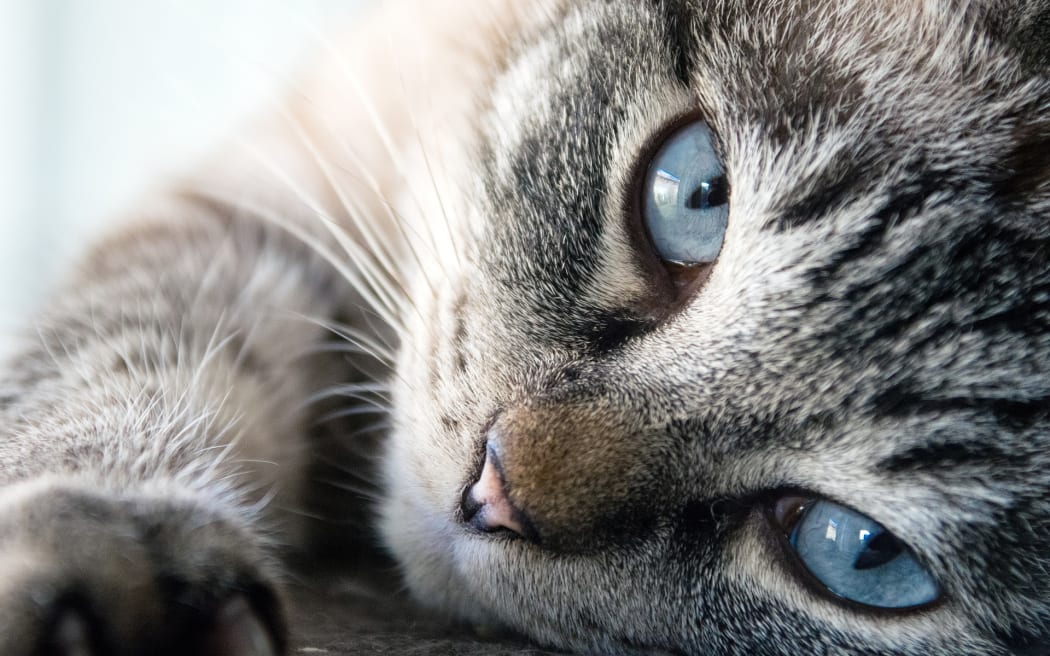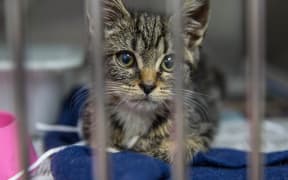
Companion Animals NZ estimates there are 550 owned cats in the Gisborne region capable of parenting kittens. The organisation is calling on the district council to make desexing and microchipping compulsory (file image). Photo: PIXABAY
Animal advocacy groups are calling on Gisborne District Council to require mandatory microchipping and desexing of cats in hopes it will stop feline numbers from ballooning.
Companion Animals NZ (CANZ) and Forest & Bird last week presented to the council's submission panel for the review of its Keeping of Animals, Poultry and Bees Bylaw.
CANZ welfare manager Sarah Olsen pushed the council to make a series of ownership steps compulsory as part of that review, saying cats were capable of having up to a dozen kittens a year across multiple litters.

"I'm here to encourage Gisborne District Council to lead from the front in this issue," Olsen told the panel.
"The responsible ownership of all companion animals shouldn't just be a matter for enforcement. It's a matter of doing what's right and improving the culture of pet ownership in New Zealand."
Compulsory desexing, microchipping and registration should apply to all cats over four months old, she said.
In her report, Olsen said close to 47 percent of Gisborne households owned a cat - an average of 1.7 per household.
More than 4 percent were not desexed, meaning an estimated 550 owned cats in the region were capable of parenting kittens.
Female cats could have an average of four kittens per litter and up to three litters per year, she said.
"Desexing is the most affordable, sustainable and practical solution to controlling the cat population."
Data compiled by CANZ in 2020 showed that 39 percent of Gisborne's cats were microchipped but only one third of those had been registered to the New Zealand Companion Animal Registry.
This meant just 13 percent of cats in Gisborne were easily identifiable in the event of going missing.
Olsen admitted the council was challenged with enforceability issues because of the lack of central government legislation relating to cat management, but said changes to the bylaw would set an expectation of what was required to be a responsible owner.
Asked by chairman Tony Robinson about the cost to families who were struggling to make ends meet, Olsen said help was available through desexing campaigns such as the SPCA's Snip 'n' Chip.
The cost for desexing cats normally ranged from $80 to $90 for males and $150 to $200 for females, she said.
Forest & Bird backed CANZ's push to make microchipping, desexing and registration compulsory.
It said Gisborne had a "well-known issue" with nuisance cats.
"Forest & Bird is supportive of policies in Keeping of Animal bylaws that reflect the need to better manage the negative impacts of cats," regional conservation manager Amelia Geary wrote in her submission.
"However, we would like to see specific provision in the proposed amendments to limit the number of cats per household across Gisborne district."
The organisation recommended capping that number at three, which was in keeping with other councils, including Wairoa, Invercargill and New Plymouth.
It said cats were apex predators which posed a significant risk to native and endemic birds, lizards and insects throughout the country.
The council received a total of 37 submissions for the bylaw review.
Three of those submitted to the committee.
Local Democracy Reporting is Public Interest Journalism funded through NZ On Air




